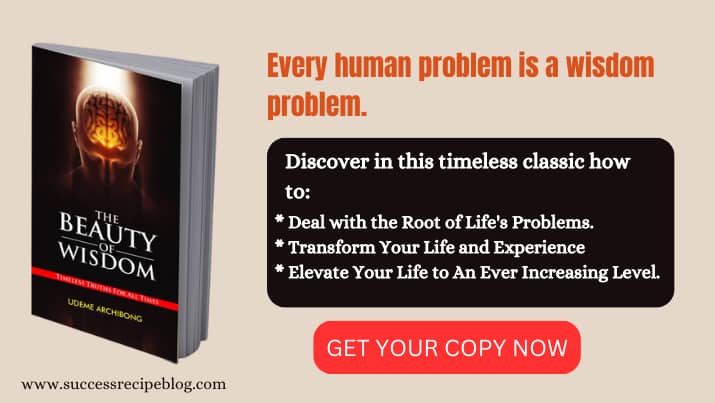
Mental Diet: How To Turn on Your Success Drive (2)

The first and best victory is to conquer self”.
- Plato.
What is the fundamental or basic requirement for success in every facet of life? What is the distinguishing mark between success and failure?
What is needed to bridge the gap between where you are now and where you want to be? What is the single factor that is responsible for sustainable success? Self-control unlocks the answers to these questions.
To journey on the success route you must root out excuses from your mind lest you rule out success from your life.
Excuses are the comfort zone of losers who justify and rationalize their position of comfort in a retrogressing zone of life.
To become more you must become more self-disciplined. You give up on your goals and dreams only when you give in to a lack of self-discipline.
Self-discipline is what makes success possible and lack of self-discipline is what makes failure inevitable.
The short-cut mentality is the reserve of those who are short on self-discipline. The pursuit of get-rich schemes and easy money is the pursuit of those who lack self-discipline.
Someone once said, “The shortest way to success is to know from the outset that there are no shortcuts to success”.
Herein lies the bane of many destinies: the desire or craving to seek the fastest and easiest way to get what you want in the present without any thoughtful consideration or concern for the long-term consequence of your actions.
Doing what is hard but necessary may not always be an easy choice to make but the payoff is inestimable which guarantees success without regrets both in the short-term and in the long-term of life.
There can never be mastery in any frontier of life without self-mastery.
When your appetites, emotions, impulses, or inclinations become your master your destiny is in the danger zone of life; if you do not develop self-mastery to change direction, your life will eventually lead to destiny wreckage.
Your ability to control what you say and what you do is the power to direct your destiny.
Self-discipline is giving up short-term pleasures that lead to long-term pressures and in some cases lifetime pressures.
It is denying you the laxity of moral compromise to gain the guaranteed promise of long-term success. It is delayed gratification that leads to delivered satisfaction. It is living above the lure of falling into temptation in the dungeon of failure.
To turn on your success drive and keep it cruising on the highway of success is to tune into the frequency of thought that views life from the long-term perspective or consequence of every action you take.
You must have the forethought and develop the foresight of where your choices or actions will lead before determining in the present your choice of action. In other words, you must ask yourself, “Will this choice of action lead to shaping the kind of person I want to become and will it deliver on my life’s goals?
The person of self-discipline lives in the awareness that there are things he must do to steer his life’s course and stay on the course of success; equally, there are things he must never do if he must stay the course of success.
The individual needs no external laws or “supervision” because he has aligned himself with the laws of success through self-discipline.
Consequently, his life is on course in every ramification – work, career, marriage, relationships, finances, and character.
Therefore, your actions should be in harmony with where you want to end up in life; neglecting or ignoring this principle is to end up in failure.
“If you want to have a happy marriage, be the kind of person who generates positive energy and sidesteps negative energy rather than empowering it. If you want to have a more pleasant, cooperative teenager, be a more understanding, empathic, consistent, loving parent. If you want to have more freedom, more latitude in your job, be more responsible, more helpful, and a more contributing employee. If you want to be trusted, be trustworthy. If want the secondary greatness of recognized talent, focus first on the primary greatness of character.”
- Stephen R. Covey.











